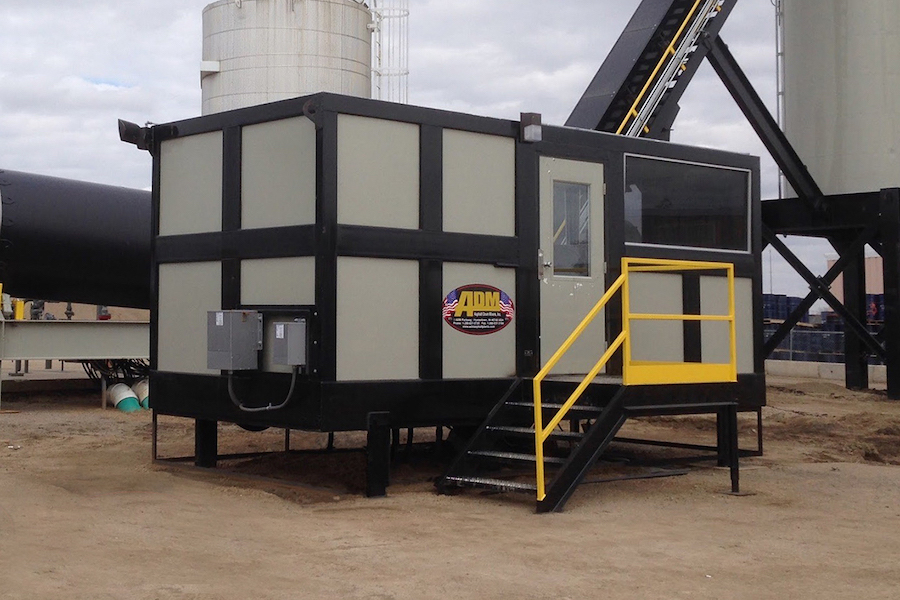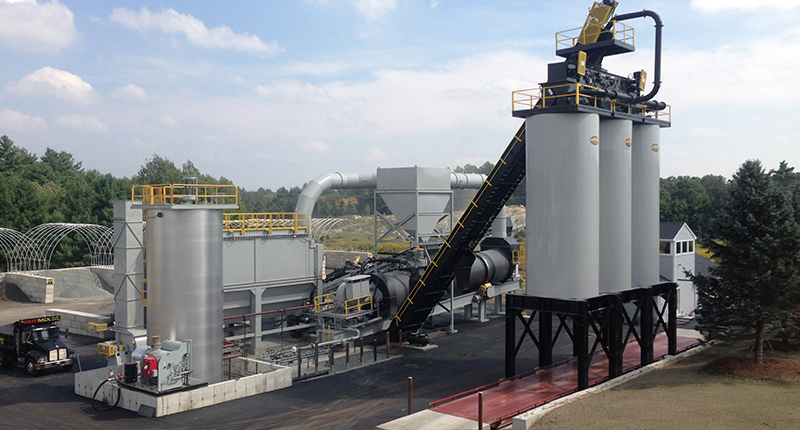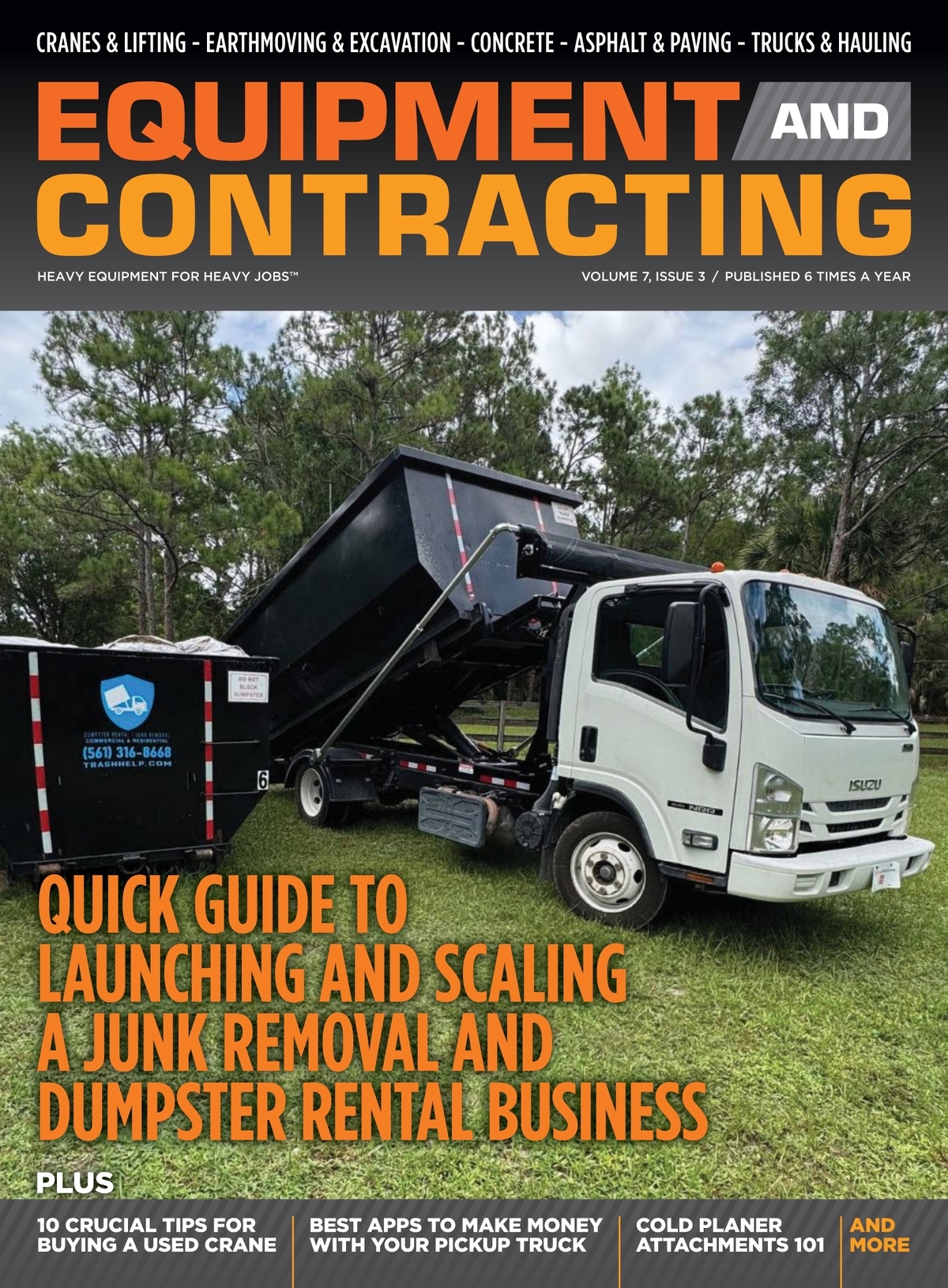
View the complete article here.
HMA plant owners have a lot of tasks to juggle. Receiving, storing, and processing materials for a variety of hot mixes is just the beginning. They have to monitor plant capacity, data, safety issues, and more. How to develop and keep to a production schedule is challenging. In this article we discuss how to improve asphalt production scheduling.
Impacts to Schedule
A lot can go wrong to impact an HMA plant’s production schedule. Bad weather, traffic accidents, and equipment breakdowns are just a few common problems that can put a wrench in any schedule. Throw in bad mixes and poor communication between the key players and a plant owner can get behind schedule fast.
Mix Waste & Mix Delivery Issues
Two huge – and expensive – issues for HMA plant owners are wasting materials due to an improper mix, delivering the wrong mix, or delivering the right mix too late. There are ways a plant owner can reduce risk and increase efficiency through communication, automation, software, and cross-training.
Communication
There are several ways to improve communication in any organization. The first is to actually talk to each other – and listen. It’s not necessary to have long meetings where half the participants don’t know why they are there. But a daily or weekly “standup” meeting can help plant owners understand what’s happening that can impact the schedule. These are short (15-20 minutes), informal meetings where a brief status is given, and action items are agreed upon. How you share those action items in a timely and efficient manner is best done with a good software program. Or you can shout it out on the floor and hope everyone can hear you over the machines.
Automation for HMA Plants
HMA plant automation continues to evolve. Automation provides 24/7 monitoring of your equipment and processes. There are many automation solutions including machine monitoring, control systems, and silo safety systems.

Machine Monitoring
Machine monitoring systems use various electronic devices to continuously monitor the HMA plant’s production equipment. For example, ensuring that a belt scale or material feed bin is operating properly. Standard Filter Corporation offers a baghouse monitoring system that can be remotely controlled. Even if your HMA plant is located where there is unreliable or nonexistent internet service. Their DustLink™ Baghouse Monitoring Service has a satellite communications option to keep your plant operations data accessible around the world.
Control System
A control system automates plant operations. For example, Almix sells its Insignia Control System (ICS) that automates the blending process across plant stations. It provides real-time data on production and, optionally, fuel and power consumption.
Silo Safety Systems
Silo accidents can be devastating to an HMA plant operation. A silo safety system can prevent accidents. Command Alkon has a silo safety system that uses sets of infrared sensors to ensure that a truck is properly positioned under the right silo. If not, the silo won’t open.
Software
There are software solutions available that can keep your HMA plant humming and your employees and customers happy.
Mix Scheduling Software
This software is specifically made for HMA plants. There are cloud-based systems (where the data is stored and managed by a cloud-service company) with iOS and Android applications that can be used in the field. A program such as PlantDemand allows operators to assign an ID and name to a mix recipe and associate it with input materials from specific vendors. Everyone on the team is updated live – which increases communication and reduces errors. Orders can be input from anywhere there is an internet connection and a device with the software’s app installed.
Dispatch Module & GPS for HMA Plants
Some HMA plant owners also offer paving services. A combination of dispatch software and GPS (Global Positioning System) can improve the hauling operation by maintaining the correct truck spacing. This ensures the paver doesn’t sit idle waiting for mix. At the same time, you don’t want to over truck – sending out more trucks with mix that will sit idle at the job site. This alone can save an HMA plant operator thousands of dollars each year. The dispatch module can provide data on how a worker is driving and if mix is wasted between the plant and the job site. Command Alkon offers Ruckit, a dispatch and logistics solution for managing trucks that haul heavy materials.

No Magic Pill for HMA Plant Scheduling
Rather than attempt to implement one software program that does it all, consider a module approach. If you have done your due diligence in crafting a requirements document, you can begin implementing specific tools to solve specific problems. What is the simplest tool to invest in that will solve the most expensive problem in your HMA plant? It may be less expensive in the long term to integrate systems later on. A quality HMA plant software program will integrate with business systems from major vendors such as Oracle and Microsoft.
Training and Buy-in for HMA Plant Technology
A good software program is useless if workers don’t believe it will help them do a better job. Take the time to listen to the people who are running your HMA plant during the requirements gathering phase. Workers who have input into the new system tend to champion it – if they feel their opinions were listened to, even if a different choice is ultimately selected. If you have buy-in from your employees, you must then provide initial and ongoing training. It is not unusual to have employees who are resistant to change. One way of mitigating this risk is to train a skeptical worker to train others on the team. The trust you install in them (along with a bonus for the extra work) can increase their commitment to the new way of doing things.
Cross-Training HMA Plant Employees
Many HMA plants are run by small crews. It’s great for efficiency – until a worker gets sick or takes a vacation. Cross-training your HMA plant employees can greatly reduce downtime. Wherever possible you want a backup worker for key operations. It’s helpful to have cross-trained employees share responsibilities on a regular basis so that they can readily step in for each other, if needed.
Conclusion
There are so many variables to keep track of in an HMA plant that impact scheduling. Information systems give the power of data to the plant operators. Along with automation and scheduling software, plant workers can ensure that the right hot mix leaves the plant and arrives to the jobsite on time. Cross-training is critical to reducing plant downtime and increasing efficiency. Remember that automation is only as good as the human beings who implement it. Train your workers well on the automation equipment and software you install and the return on your investment could be substantial.
View the complete article here.
How can HMA plant owners improve communication to enhance asphalt production scheduling?
What role does automation play in optimizing HMA plant operations, and what specific systems can be employed?
Automation, including machine monitoring, control systems (e.g., Almix's Insignia Control System), and silo safety systems (e.g., Command Alkon's infrared sensor system), contributes to 24/7 monitoring, real-time data, and accident prevention in HMA plant operations.














































